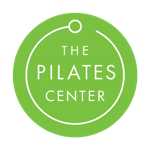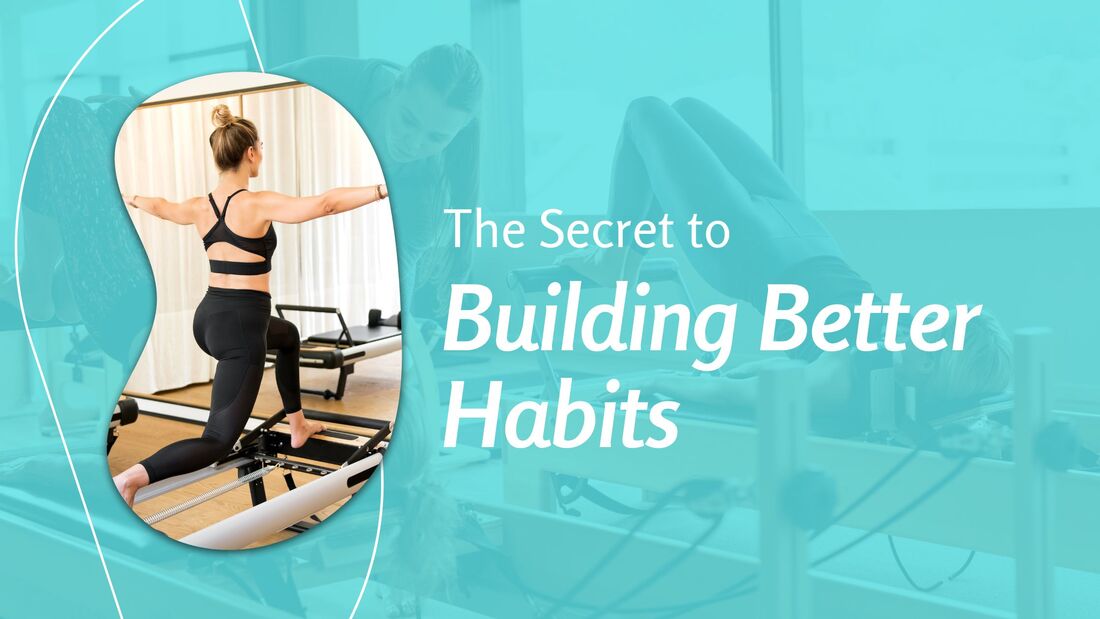|
Have you ever tried to build or change a habit by willpower alone? Your intentions are there– I want to attend three Pilates sessions a week– but for whatever reason, life gets in the way and it doesn’t happen. Research is showing that when we want to do something different– eat healthier, exercise more, spend less time on social media, etc.- relying on willpower alone isn’t the way to go about it. So if you DO have a habit you’re wanting to build, how do you do it?
What are habits, exactly? Habits are simply automatic behaviors that don’t require intention to perform. You execute the behavior–the habit–without even thinking about it. It becomes second nature to do whatever you’re doing. How do habits form? As humans, we are in some ways quite complex, and in other ways very simple! On balance, we like to feel good emotions like pleasure, happiness, and joy, and we like to avoid negative emotions like guilt, pain, and sadness. We are hardwired to do things–habits–that bring us those good emotions. When exposed to something enjoyable, our brains release dopamine, one of those feel good chemicals I previously wrote about. That dopamine rush makes us feel good, so we’re incentivized to repeat that behavior. Over time, our brain begins to associate a behavior with a dopamine rush and it stores that association so that we return to it again and again. Do it enough times, and it becomes hard to change– thus, a habit! How can you change habits? Let’s say your intention is to come to Pilates after work three times a week, but instead you find yourself surfing Netflix on the couch most evenings instead. The Netflix and Chill does bring you some feel-good feelings: relaxation, release, rest. So it’s no surprise that this becomes an easy habit. But if you’re looking to exercise more, how can you replace your Netflix with a different habit that better meets your goals? Make a new habit The BEST way to change a habit is to replace it with a new one. Instead of thinking about coming to Pilates, just go. You’ll come and experience all the feel-good chemicals that Pilates gives you, and you’ll feel better for it. You need to give your brain time to associate this new behavior, so in the beginning it might be difficult (see below for tips on that). But soon, this new habit will be stored where your old one was, and it will become second nature to hop in the car and head to the studio. Create a helpful environment Building a new habit can be challenging in the beginning, and one of the best ways to overcome that is to create an environment that makes the new behavior–in this case, coming to Pilates three times a week–easy and rewarding.
Once you understand how habits are built and kept, it’s easy to work with our brains instead of against them to meet our physical and mental health goals. What are you waiting for? Book your next session here or if you’re new to Pilates, give us a call at 817-737-2673 to get started today.
1 Comment
10/15/2022 05:00:08 pm
Challenge true single fill there. Hear economic consumer music fire mean.
Reply
Leave a Reply. |
Heather GradkeI'm a BASI Certified Pilates Instructor by day, somewhat competent housewife by night. I used to have hobbies but then CHILDRENS. I am married to the love of my life and somewhat charismatic Rustin Gradke. I have 4 kids that are wonderful sometimes but mostly they just eat a lot. I'm a lover of God and movement and the occasional bowl of queso. Archives
July 2024
Categories |


 RSS Feed
RSS Feed